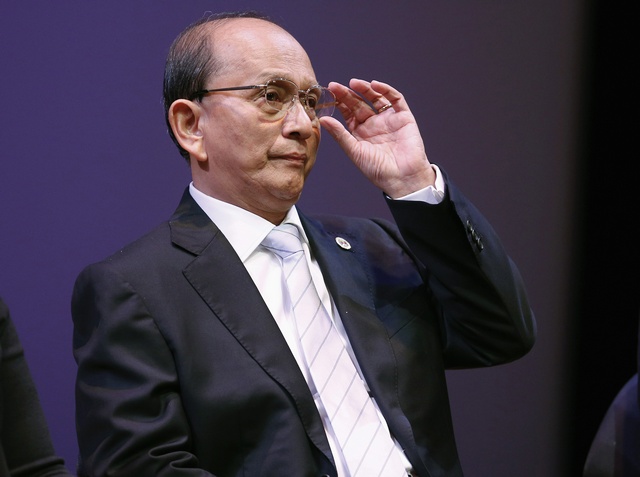President Thein Sein has been tipped as a frontrunner in this year’s Nobel peace prize award, days after denying army abuses in Burma’s conflict torn Kachin state, according to an AFP report.
The head of the Peace Research Institute of Oslo, Kristian Berg Harpviken listed President Thein Sein as among the five frontrunners in the prestigious award in recognition of his efforts “spearheading a gradually evolving peace process in the country”.
The nod is likely to spark controversy in Burma’s many ethnic regions, where the army has been accused of ongoing human rights violations, including rape and murder.
Although Thein Sein has overseen tentative peace deals with most rebel groups since becoming president, violence continues to flare in its northernmost Kachin state, where a territorial dispute ended a 17-year ceasefire in June last year.
‘The international community is talking about how Burma is now reforming into a democratic country. But in Kachin state things are worse than ever before. So how can we understand that he [Thein Sein] could be given the Nobel peace prize?” asked Moon Nay Li from the Kachin Women’s Association of Thailand (KWAT).
President Thein Sein has insisted that government troops are only acting defensively, despite local reports suggesting a final push to seize the Kachin Independence Organization’s headquarters in Laiza.
In a recent interview with the BBC, Burma’s president dismissed a March Human Rights Watch report, which accused government troops of widespread and systematic abuses against civilians, as “one-sided”.
“Our military is very disciplined, there is no reason for the military to commit acts of rape or murder,” he said.
Harpviken told AFP that awarding Thein Sein the prize “would stir controversy”, but “the [Nobel] committee has often insisted that the prize is not to be for saints only, and has in recent years been particularly eager that it makes a difference in processes unfolding, even if that may carry high risk.”
Burma’s other Nobel laureate, democracy icon Aung San Suu Kyi, has also drawn criticism for failing to condemn the army’s ongoing assault on the northern state.
“There are people who criticised me when I remained silence on this case,” she told an audience in New York. “They can do so as they are not satisfied with me. But, for me, I do not want to add fire to any side of the conflict.”
A coalition of Kachin organisations, including KWAT, subsequently accused Suu Kyi of betraying her humanitarian credentials in a strongly worded letter.
“Given the climate of violence, fear and suffering our people are enduring everyday, it is disheartening not to hear you speaking out against injustice for those who have been forcibly silent, instead you declared you have a soft spot for Tatmadaw [Burma’s military] that your father founded, the very institution that is responsible for such miseries,” read the letter.
Both Thein Sein and Suu Kyi have drawn further criticism for their stance on Burma’s stateless Rohingya minority, whom the president infamously attempted to hand over to the United Nations in the wake of deadly sectarian clashes in the west of the country.
Earlier this year, Thein Sein controversially squeezed out Suu Kyi to secure a spot on Time magazine’s 100 most influential people in the world.



